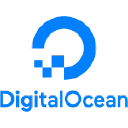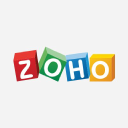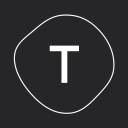
On Launching A Website Focused On The Remote Community
Hello! Who are you and what business did you start?
Hey! I am Hrishikesh and I am building Remote Tools along with Suvansh and Karthik. Remote Tools is a community of remote workers to discuss, learn and grow remote work.
Remote Tools itself comprises of multiple components - independent offerings by themselves.
On the frontpage, you will see remote-first products posted by makers. Community members can discover new products that help them at work or simply geek out about them and interact with makers & fellow workers.
The Remote Weekly is a weekly newsletter that shares original content, product tips and latest stories around remote working. Each Wednesday we send over a personal note on one relevant topic in the world of remote.
A large chunk of Remote Tools is the ‘Remote Working Hub’ which comprises the following:
- The Remote Working Chronicles - Personal stories of successful remote workers - motivation, transition, challenges, likes/ dislikes & their overall journey
- The Remote Working Show - Interviews with leaders of top remote companies like GitLab, InVision, ScrapingHub, HubStaff among others
- Remote Makers Podcast - Interviews with entrepreneurs and indie-makers who are building remote-first products
- Blog - Quality content pieces around remote working
Finally, there’s an active community where we discuss and share about remote work (currently invite-only :))

What's your backstory and how did you come up with the idea?
At Flexiple, our tech team is geographically distributed and it has worked well for us, as we have been able to find the best talent to work with us. However, it comes with a fair share of challenges. Each time we faced one, we sat down to search and evaluate tools that could help us.
This can be pretty mind-numbing – we couldn’t believe that there wasn’t a central directory of tools that had already been reviewed for remote teams to leverage!
So, we took it upon us and launched the first version of remote.tools – a repository of 100+ handpicked tools & resources in 20+ categories for distributed teams. The product was a great hit, and further also gave us great insight into additional features that could be extremely helpful to the remote community.
Platforms like Product Hunt and HackerNews are a great source of traffic spikes for your product. You should definitely leverage them. However, it’s important to first contribute to the platform to be able to reap benefits from it.
We launched the second version of Remote Tools where remote-first makers could share & market their product(s) and interact with a very relevant audience. Over time, we kept making new additions like the podcasts, chronicles (described earlier) in line with our vision to have a central place to discuss and grow remote work.
Take us through the process of designing, prototyping, and manufacturing your first product.
Given we wanted to build a repository of handpicked remote-first products, we first focused on getting the content right. This was quite a laborious task since we manually analysed and reviewed 100+ tools across 20+ categories!
Here’s a snippet of how the data looked like in Google sheets:

While this was supposed to be a static website, we wanted to have some form of interactivity when users viewed the information. This is why you see the right interactive sidebar on the product page, that was widely appreciated by our users in the first version and has stayed across iterations.


As for the homepage, we wanted to have it focused on categories and be easily navigable. A tile structure seemed to be the best choice here.

A major miss at our end in the first version was the absence of a subscribe box! This affected us quite a bit since we couldn’t capitalise on the initial interest on Remote Tools and had to start from scratch with the second version.
For the second version, we needed more nuanced features:
- User registrations & profiles
- Ability to post products
- Upvotes & comments
We were sure that we wanted to retain parts of the product that clicked well with users (e.g. the category grid, interactive sidebar). So, the homepage then looked like this:

Describe the process of launching the business.
For the first version, we wanted to validate if people are indeed curious and interested to talk about remote tech products.
We simply had two objectives in mind
- Put up quality data (about products) on an intuitive, easily navigable website
- Place the product in front of as many target users as possible and get feedback
Product Hunt was our natural choice in terms of achieving point 2. I have enumerated our experience of launching Remote Tools on Product Hunt (twice) in this blog and I would strongly recommend the platform for anyone looking to market their tech product and get early user feedback.
Relationship building and being part of a community by giving, are often overlooked by people who start out.
Honestly, we hadn’t prepared extensively when we launched on Product Hunt the first time. We surely had the fundamentals right - the post content was great and we were super responsive on user comments. But the product organically ranked at the top and we were a little fortunate that this happened.
The second time around, when we launched the full-fledged product discovery and posting platform, we had done extensive research and were much better prepared. Again, the post I shared earlier, documents this well.
Since launch, what has worked to attract and retain customers?
Given Remote Tools itself comprises multiple components, I will detail what we do in each part:
Featuring remote tech products - Apart from makers that post products by organically discovering the platform, we have a process through which we reach out to makers inviting them to post. We also encourage makers to invite other users to support (upvote and comment) their product on Remote Tools. They are incentivised to do so since the top 5 products of the week are featured in our weekly newsletter and there are six spots for all-time popular products :)

Weekly Newsletter - We send out a personal note on one relevant topic around remote working each week in our newsletter, ‘The Remote Weekly’. Currently, at 1000+ subscribers, our newsletter audience is highly engaged. Each week, once the newsletter goes out, we also post it on our website and on platforms like IndieHackers and LinkedIn. This way, we ensure a regular flow of subscribers to our newsletter each week.




The Remote Working Chronicles & The Remote Working Show - Both chronicles and the show are our initiatives to produce quality and original content around remote working consistently. Again, to ensure that users are hooked to new content, we ensure regularity in producing content in both these sections. Every time a new piece is published (story or podcast), we share it in the coming week’s newsletter and it is also independently shared across IndieHackers, LinkedIn, Twitter, etc.
How are you doing today and what does the future look like?
We aren’t monetizing Remote Tools in any way at this point and it is entirely funded by Flexiple.
Here’s a snippet of a week’s traffic to Remote Tools:

Also, as I said earlier, there are 1000+ engaged subscribers in our newsletter.
Through starting the business, have you learned anything particularly helpful or advantageous?
Absolutely! We are still learning quite a bit but I have put down our learnings so far under the following heads -
Marketing - Platforms like Product Hunt and HackerNews are a great source of traffic spikes for your product. You should definitely leverage them. However, it’s important to first contribute to the platform to be able to reap benefits from it. Also, one should note that these platforms help you get a good spike in traffic, subscribers or customers. You will still need to put in consistent efforts to see growth regularly.
Community Building - Just building a product, forum or platform won’t help much in building a community in the true sense. You probably would have people come onto your website, even interact once but it won’t be consistent engagement unless people are truly passionate about the cause and believe in you, as a person. Building an active, vibrant community takes a huge amount of effort and time. We are still in the process :)
Product Building - We probably learned it the hard way. At this point, however, I strongly vouch for no-code tools till the point it solves your use-case sufficiently. Don’t shy away from using WordPress themes or products like Unicorn Platform to build your solution. We have done both - built products from scratch and using no-code tools - and have realized that you are able to build faster and in a robust way using no-code tools.
What platform/tools do you use for your business?
- Zoho CRM for maintaining internal data
- Typeform for product posting and other forms
- Optimonk and ThriveLeads for on-site messages and popups
- WordPress for content websites
- Digital Ocean for hosting websites
- Mailchimp for email newsletters
- Soundcloud for podcast hosting
What have been the most influential books, podcasts, or other resources?
- Indie Hackers Podcast - I love bootstrapped businesses and the IH podcast has many of them. We have our very own makers podcast (remote makers) too if you would like to check out :)
- This Week in Startups - I listen to this podcast to stay updated about new and interesting startups
- Zero to One (by Peter Thiel), Rework (by Jason Fried) are great reads
- I also regularly listen to diverse podcasts episodes (by simply searching online) of entrepreneurs, PMs or marketers I come across (on social media or through their blogs)
Advice for other entrepreneurs who want to get started or are just starting out?
I feel relationship building and being part of a community by giving, are often overlooked by people who start out. They are looking for immediate gains when they are part of a community or when they connect with someone. It’s important to develop and nurture relationships first, with individuals or within an entire community, before leveraging it for gains.
Also, it is wise to take advantage of what others have built rather than doing it yourself. If you see a drag-and-drop platform that helps you build a solution in just a few days (which would have otherwise taken you weeks or months), you should surely go for it. Such tools (with the kind of sophistication and customization) didn’t exist 4-5 years back but they do now and you should leverage them.
Are you looking to hire for certain positions right now?
We are always on the lookout for amazing individuals to join our team :) At the moment, we are actively looking to hire a content writer, who can write non-tech articles and ebooks. We are pretty much open to having this as a part-time/ full-time contract role (fully remote). Drop me a line at [email protected] if this interests you.
Where can we go to learn more?
If you have any questions or comments, drop a comment below!
P.S: I also work on a SEO project on the side to drive passive income - Writer Alpha :)

Download the report and join our email newsletter packed with business ideas and money-making opportunities, backed by real-life case studies.

Download the report and join our email newsletter packed with business ideas and money-making opportunities, backed by real-life case studies.

Download the report and join our email newsletter packed with business ideas and money-making opportunities, backed by real-life case studies.

Download the report and join our email newsletter packed with business ideas and money-making opportunities, backed by real-life case studies.

Download the report and join our email newsletter packed with business ideas and money-making opportunities, backed by real-life case studies.

Download the report and join our email newsletter packed with business ideas and money-making opportunities, backed by real-life case studies.

Download the report and join our email newsletter packed with business ideas and money-making opportunities, backed by real-life case studies.

Download the report and join our email newsletter packed with business ideas and money-making opportunities, backed by real-life case studies.



















